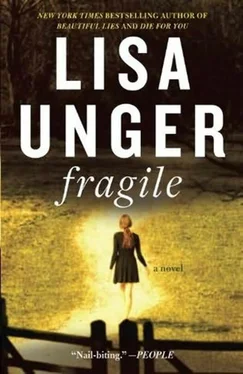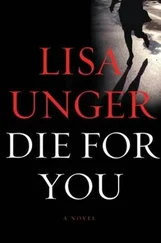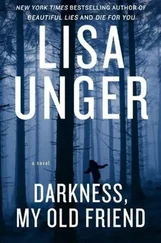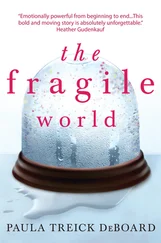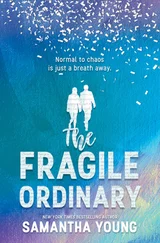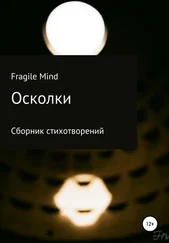When she was done, he said, “Your parents wanted you to have your own life. They raised you to be independent and move away from here. Your mother has said as much. He knew you loved him. You were here when they needed you. That’s a lot.”
She was used to offering others solace and advice; it surprised her to receive it, to be grateful for it. She found herself crying. She put her hand to her eyes and then felt him wrap his arms around her. In a way, after that moment, she never left The Hollows again. The years grew over that embrace like a vine.
Now they were fighting-again, which unfortunately was their way in times of stress. Each was a safe place for the other to blow off steam. It had started when they’d stepped outside, Jones telling her to go home, he’d handle it from here.
“Where’s Ricky?” she asked, glancing at Jones’s SUV, for some reason expecting to see their son sulking in the passenger seat.
“At the house with Chuck.” Chuck Ferrigno, one of the other detectives on the squad.
“What do you mean? You don’t mean to ask questions about Charlene?”
A raised female voice inside caused them both to look at the door for a moment, then look back at each other.
“Of course,” he said.
“You left our minor child with a cop, no parent or attorney present, to be questioned about a missing girl?”
“Come on. He’s a cop’s son. We’re not calling in an AMBER Alert here. This is a runaway situation. Not an abduction.”
For some reason, she heard Melody’s plaintive question, How do you know?
Everyone had thought Sarah had run away as well, after that fight on the phone with her mom. Trying to get even. Trying to make everyone worry. There were recriminations later that the police didn’t act quickly enough. But that was another girl, a lifetime ago.
“What’s wrong with you, Jones?” she said, lowering her voice to a whisper. “Don’t you have an instinct to protect your son?”
He drew back as if she’d slapped him. Before he had a chance to return fire, Melody burst out the door, rushing toward Jones. She looked harried, pursued by demons. When she spoke, it was a barely intelligible wail.
“Are you going to find her, Jones? Are you going to do something besides stand around with that superior look on your fucking face and find my daughter?”
“Melody,” said Jones, his voice surprisingly calm and gentle. He placed a hand on each of her shoulders. “Calm down. We’ll find her.”
Melody started to weep again, her face morphing from a mask of rage into a caricature of misery; then she collapsed against Jones, who supported her weight and led her back into the house. A light blinked on in an upstairs window of a neighboring house. Maggie heard a door open. It wouldn’t be long before everyone knew what was happening.
Denise stood in the doorway, on her face an expression of pity battling disdain. The homecoming queen. Jones practically dragged Melody up the three steps to the front door. The jock and the burnout. The other cops, too, Tony Jackson and Mark Albright, bit players from the same every-East-Coast-high-school production-the science nerd, the fat kid. And finally Maggie, the goth who couldn’t wait to get away but wound up coming home. And yet they were all so much more than that, weren’t they?
The only one of them who was not allowed to be what she would become was Sarah. And she was there, on everyone’s mind. How could she not be? They all remembered her. She’d never left this place, either.
Sarah had stood among them but always, somehow, apart. She didn’t belong there-in The Hollows, in that school, and she knew it. Everyone knew it. And yet no one could accuse her of being a snob or stuck-up in any way. It was her gift that kept her separate; maybe she didn’t even want it that way. But how could someone who knew the passion and discipline of an artist before she was fourteen stand anywhere but apart from the rest of them, who barely knew who they wanted to be or what they might be good at?
Music had claimed Sarah when she was too young to know anything else. Maggie saw that clearly, looking back. When Sarah played the violin, she disappeared, became a portal through which her prodigious talent passed. Maggie remembered the way Sarah’s face would contort, her eyelids flutter, her head move willowy and slow; she was utterly unself-conscious with a violin beneath her chin and a bow in her hand. She was lost and found. It was a special thing, an uncommon thing. And everybody, even those who would normally taunt and tease, torture a thing they didn’t understand, kept a reverent distance.
Her parents had moved from the Pacific Northwest so that Sarah could have proximity to New York City but chose the suburbs so that they could keep her safe from all the threats and temptations of an urban environment. Sarah was absent every Friday, when she commuted to Juilliard for the day with her mother for the precollege program. Sometimes they spent the weekend, returning Sunday afternoon. It was impossibly glamorous, yet she sat in the same cafeteria, failed to climb the rope in gym class, got detention for passing notes to Melody during study hall. Among them, but apart.
Maggie hadn’t thought about Sarah for years, not in that way. She didn’t remember often the way Sarah had lived, who she had been. Sarah was forever defined by the way she died. She was every parent’s nightmare, a warning, a cautionary tale. She was proof that everything parents feared was possible, even in this quiet, not quite suburban, not quite rural town. The worst happened, even here.
Maggie was thinking this as she watched Ricky slumped on the long suede couch of their great room. The large stone fireplace on the far wall was flanked by shelves filled with books and photographs, Jones’s old sports trophies, Ricky’s various art class creations-an ashtray, the sculpture of a frog. The high, beamed ceiling gave it a spacious feel, but it was a warm room, a real room, where they ate pizza and watched movies, spilled soda on the carpet-nothing like the showplace where Denise and Britney lived. It was designed for comfort with the sectional and plush carpet, a cozy love seat, a new flat-screen hanging on the wall.
“If you know something, Son,” Chuck was saying as Maggie walked into the room. Both man and boy raised their eyes to look at her, but neither acknowledged her. Chuck kept talking. “Now’s the time to let us know before this gets out of hand. If she’s taken off and you know where, you’re not helping her by keeping it to yourself.”
She sat beside her son. “Do you know something, Ricky?”
He offered a shake of his head, kept his eyes blank and staring at the ground. He was a charismatic kid when he wanted to be. When he didn’t, he was a locked box with the key inside. Just like his father.
“I told you,” he said, an annoyed edge creeping into his voice. “Charlene stood me up tonight. She didn’t answer any of my calls. If I knew where she was, I’d tell you. Especially with her mom so upset.”
“Let’s go through it again. You were supposed to meet her where?” asked Chuck.
“At Pop’s Pizza.”
“How was she going to get there?”
“Her mom was going to drop her off, I guess. I didn’t ask.”
“You didn’t ask? Didn’t offer to pick her up?”
“Char’s not allowed in the car with me. Her mom doesn’t want her to ride in cars with boys.”
Chuck issued a conspiratorial chuckle, a kind of I remember how it was smile, and a roll of the eyes. She saw Ricky smile in return.
Then, “So you never drove anywhere together?”
“No, we did,” Ricky admitted. “All the time. But her mother doesn’t know that. I don’t pick her up at the house.”
Читать дальше
